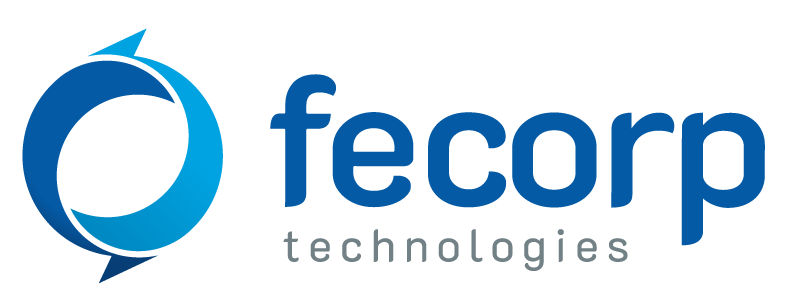2020 forced companies around the world to rethink their business models and shielded us with the biggest remote work pilot project ever. In a time of balance, we asked seven PHC leaders what were the main lessons learned during the pandemic, aware that nothing will ever be the same again.
Marcel Proust said more than 97 years ago that "the true journey of discovery consists, not in finding new landscapes, but in seeing with new eyes", and 2020 showed precisely this, with the pandemic as an accelerator of the future in terms of innovation and digitization of society. Trends such as digital transformation and remote work did not emerge unexpectedly like the virus, but, as a consequence of it, they gained a new perspective in the eyes of those who - for a matter of survival - had to implement them "by force" (read “no chance to choose”).
Digital, which was once optional, has become a form of transversal operation, in the same way that teleworking – until a few months ago a remote possibility for many companies – is today the only way to guarantee the continuity of some businesses. The result was a giant leap in weeks from what would probably take years to accomplish. AND fueron las empresas las que mejor supieron adaptarse to the changes imposed by the pandemic, the ones that are achieving the best results, as Rogério Canhoto, Chief Businnes Officer of PHC, recalled in the “Digital Drink” December issue of “Digital Marketers”: “What this minimally survived was that the companies that were mentally prepared, more flexible or agile for digital transformation, managed to quickly take the ship, adapted, some are surviving, and others are actually growing at an unbeatable pace."
In a matter of days, without anything predicting it, fuimos forzados a pasar de un extremo al otro and, in the process of adapting to the "new normal", without great certainty about what the near future holds, some questions - such as those raised by João Dias, administrator of AICEP, at the award ceremony for the “Portugal Digital Awards 2020” – arise. “How will we manage to manage two channels – online and offline – in a completely integrated and coherent way? How are we going to manage the work witnessed with remote work in a coherent way? What will management, face-to-face leadership and teamwork be like? What will innovation be like in this context?” questions the administrator, anticipating “very interesting, challenging times full of opportunities”.
There is no doubt that the pandemic has transformed society and the way leaders and companies think about the future, and it is true that technology has never been as important to solve global challenges as the ones we are currently experiencing. This is what the testimonies of the PHC leaders show, true teachings of the last months that we have lived, and that we share immediately.
Who affirms it is the CEO Ricardo Parreira, quoted in the “Guía para la Transformación Digital de las PME”, based on the Expresso & PHC survey “New Digital Challenges, Management of SMEs in Portugal”. “We have 90% of companies that are already thinking about executing their digital transition, but, within this value, there are some that are behind and others ahead. Those that go further back have countless opportunities to think about their business in a more digital way. In companies that are one step ahead, there is a whole new world of collaborative style. In other words, there are companies in different phases, but there are opportunities for all of them”.
“I clearly felt that at PHC communication was a determining factor to calm the teams, to keep them focused on what was happening and what needed to be done and, on the other hand, to calm down and send a permanent message of control”, affirms Jorge Guimarães, Portugal Business Unit Director, convinced that frequent dialogue “was a decisive factor in managing this crisis”. Miguel Bilimória, Development Director, also agrees: “I learned that remote communication is fundamental, much more than when we are in person, and I learned to trust more, that what matters is making commitments and doing things well, not What was the process like to get there?
For Jorge Guimarães, flexibility is essential to face the unexpected. “More flexible teams had the capacity to reinvent themselves in the face of this adverse situation and adapt more quickly, since the use of technology was decisive here.” The director of the Portugal business unit highlights the importance of annual planning to show the way: "Having this planning, with a macro vision, was decisive in establishing the contingency plan and in positioning the company and the teams at a time of crisis”: Miguel Bilomória corroborates, affirming that “the agile methodology that we used at PHC many years ago not only facilitated remote work”, it also eliminated the need to make alterations to the product development cycle.
For Tânia Marques, Marketing & Communication Unit Director, marketing action represents a certain risk in times of such drastic change: "There is a real risk of making the wrong decisions, as a result of the pressure imposed by the need to adapt quickly, and then there is the opposite risk, which is that of not communicating anything, while waiting for the next events, because the risk of taking wrong actions actually exists.” In the opinion of PHC's marketing director, the path lies in careful and thoughtful adaptation: “Yes, it is important to launch communications at the right time, but carefully, deliberately, without the prospect of panic and uncertainty. But also, anticipating the consequences or the following scenarios, however difficult they may be, with the certainty that what we are building and doing is consistent with the brand, with its positioning and purpose, and with market opportunities”.
For Rui Passinhas, Regional Sales Manager, the biggest challenge was the need to adapt to new ways of selling. “It is much more difficult to start and close a sales cycle entirely remotely, because commercial work requires a lot of presence, essential to create empathy.” In this sense, and because the business could not stop, there was a need to readapt skills of communication, the way of making demonstrations, optimizing some sales techniques and resorting to psychology to try to unlock certain barriers. But, in the end, against all expectations, it was proven that it is possible. “We are finishing two projects in Peru that were born entirely remotely. A few years ago, doing an implementation project completely remotely was completely unthinkable.”
The one who affirms it is Jorge Guimarães, aware that beyond great challenges and various uncertainties, there are opportunities. "Acquiring more knowledge, rethinking strategies and even exploring things that we had never contemplated to date, end up being paths that the crisis was allowing us to travel, showing that we knew how to take advantage of the situation in a favorable way."
The study concludes “Madurez digital de las empresas en el Perú”, carried out by the consulting firm EY, which 86% of companies consider that they do not yet have or do not have the necessary digital skills to undertake a digital transformation in their sector, wasting the unique opportunity to strengthen their position in the online market through eCommerce, together with of a consumer who is increasingly digital. “We are big fans of the applications we use on a daily basis, but it seems that everything we love to do as consumers, we believe, as entrepreneurs, that our consumer does not need it”, says Rogério Canhoto, Chief Business Officer, recalling that “ digital transformation begins with the consumer and that any process that is not developed around him, his needs, inspirations and aspirations dies along the way”. Above all, in an economy like Peru's, which has many MYPES, eCommerce stands as a unique internationalization opportunity that cannot be wasted.
“A few months ago it did not cross our minds to have a company operating practically 100% remotely and this is what is happening. The pandemic showed us that it is possible to lead, give training, hold meetings, make presentations and organize webinars remotely, but it did not eliminate the need for the existence of the office, which is essential to promote relationships, collaboration, the management of ideas and the discussion of issues”, says Luis Antunes, Human Resources Director. We believe in the advantages of a hybrid model, convinced that the future of work lies there: "The goal is to take advantage of the moments when we are at home to get the most out of focus and concentration, and the moments when we are in offices to create spaces for interaction, collaboration and teamwork”, he explains.
Faced with the difficulties of writing a specific plan, due to the unpredictability of tomorrow, it remains for us, as a company, to evaluate which developments imposed by circumstances generate value and make sense to incorporate into our future "modus operandi", in a process of improvement keep going.
Autor: PHC Software

